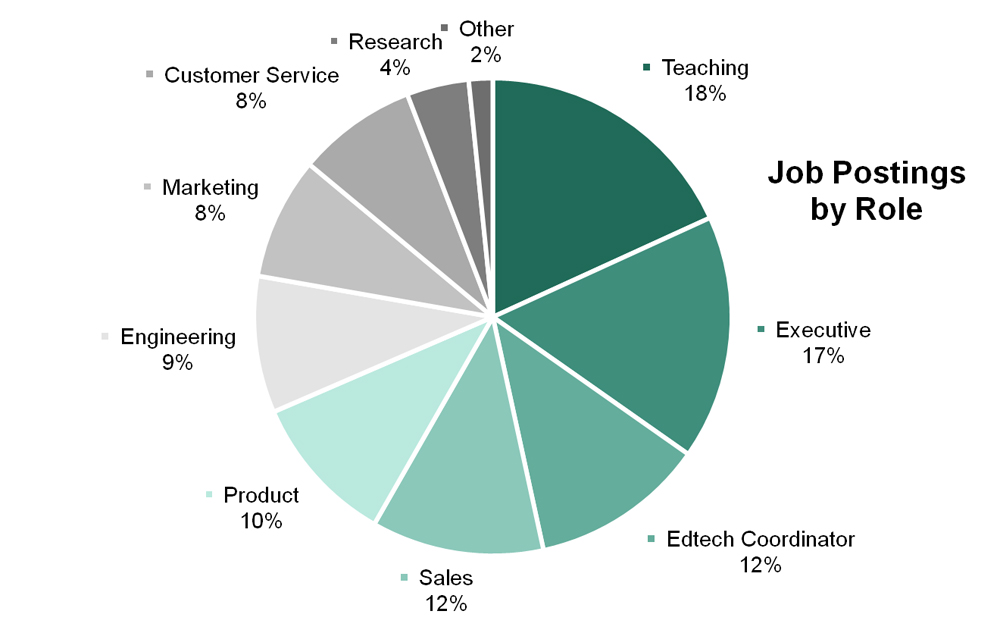Is there an “edtech capital” of the U.S.? In recent years, a number of those in the industry have tried making the argument for their hometowns. There are many ways to support one's claim to “edtech capital” fame. The numbers of startups, dollars raised and tech-savvy schools are just a few of the standards used.
A slew of cities are making their cases for the title. The edtech accelerator LearnLaunchX is not shy about claiming “Boston as the edtech capital of the world,” citing a confluence of big publishers, venture capital and top tier universities. Recently, Baltimore has been making some buzz for this title as well, citing a rich history in teacher education programs and an influx of investors and startups.
But here’s another metric to consider: jobs. Economists typically look at jobs as an important signal of how the economy is doing. Companies are only as good as their employees, and the number of openings usually reflects a company’s health and potential for growth.
So where are the jobs in the edtech industry--and what kinds of positions are available?
Since EdSurge launched the jobs board in Sept. 2013, hundreds of companies and organizations have posted 600-plus openings for a variety of roles. Here’s what we’ve seen so far when it comes to edtech jobs in the U.S.

Perhaps unsurprisingly, the “traditional” startup capitals--San Francisco and its surrounding areas, as well as the “Silicon Alley” in New York--lead the way in terms of the number of jobs posted. These cities likely benefit from already being home to a startup scene that attracts the entrepreneurial spirit and risk-happy investors.

Here’s another way of looking at the spread of jobs by major geographic regions. (Yes, the regions listed here vary greatly in size.) Broken down this way, almost half of the jobs posted are for openings in the San Francisco Bay Area.

As is typical with an emerging industry, edtech companies make up nearly half of all job postings.

Added together, openings for company-specific roles (sales, product, engineering, marketing and customer service) make up nearly half of all job posts. Educator positions (teachers and edtech coordinators) account for 30%.
Executive positions--which include leadership roles at companies, nonprofits and schools--are the second-most popular posts. The number of openings for edtech coordinators is an encouraging sign that schools are serious about effectively implementing technology in schools.
Perhaps these trends offer an additional data point for those interested in the “edtech capital” bragging rights.
We know these numbers may not be representative of the entire country. But suffice to say, the edtech industry is still in the growing stages. We expect the quantity and variety of job posts to increase and will keep you posted on evolving trends.


